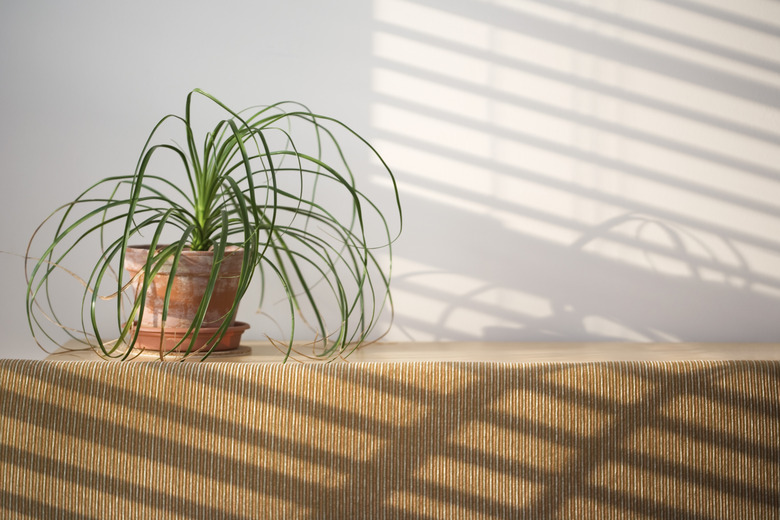How To Kill Roaches In My Potted Plants
Things Needed
- Diatomaceous earth
- Baby food jars
- Petroleum jelly
- Banana peel
While it's normal to see an occasional gnat or aphid in your potted plants, it may be surprising to find a cockroach. Although cockroaches are commonly associated with the kitchen and pantry, they will go to any location providing them with the food or water they need to survive and procreate. To kill cockroaches and get them out of your potted plants, you must use methods and supplies that get rid of the roaches without harming your plants.
Step 1
Allow your potted plants to dry completely between waterings. Excess moisture in the plants or standing water around the bottom tray is attractive to thirsty roaches.
Step 2
Sprinkle diatomaceous earth over the top of the soil. Spread a thin layer of diatomaceous earth on the table or shelf, around the base of the plant. Apply more of the fine powder each week until the roaches are gone.
- While it's normal to see an occasional gnat or aphid in your potted plants, it may be surprising to find a cockroach.
- Excess moisture in the plants or standing water around the bottom tray is attractive to thirsty roaches.
Step 3
Set aside one baby food jar for each potted plant with a soil surface large enough for the jar to sit on. Smear petroleum jelly over one entire inside of the jar.
Step 4
Lay the baby food jar on its side on top of the potting soil. Ensure the petroleum jelly side is closest to the soil.
Step 5
Place a 1-inch piece of banana peel in the jar. The roaches will enter the jar to eat the banana peel, but the petroleum jelly prevents them from exiting. At the end of the day, screw the lid on the baby food jar and place the jar in the freezer overnight before discarding it the next day.
- Set aside one baby food jar for each potted plant with a soil surface large enough for the jar to sit on.
- Lay the baby food jar on its side on top of the potting soil.
Tip
Purchase diatomaceous earth at the hardware store. The natural powder is safe to use around plants, people and pets and kills cockroaches by cutting into their exoskeletons and causing dehydration. Substitute silica dust for the diatomaceous earth.
